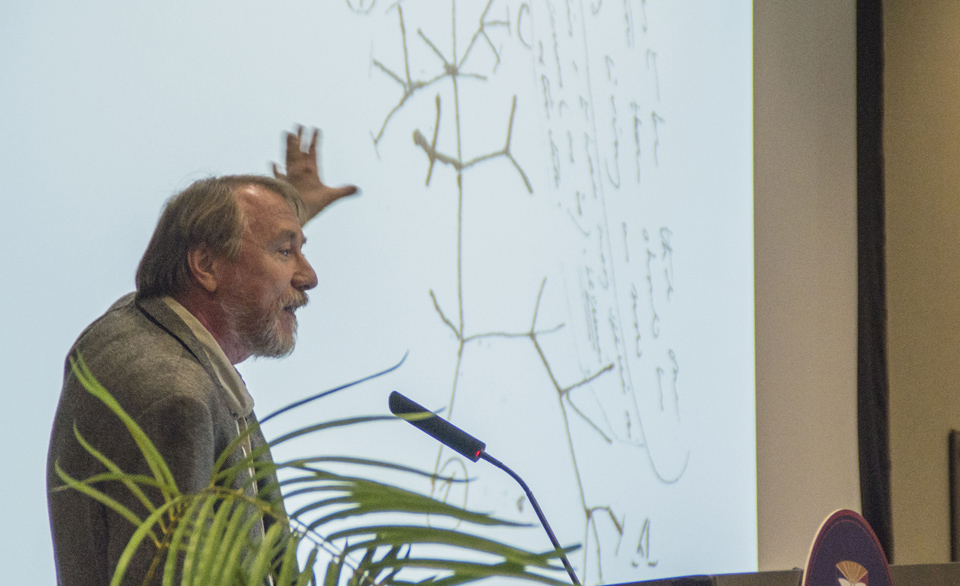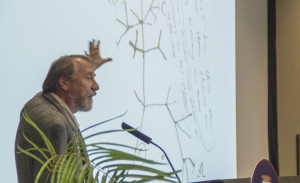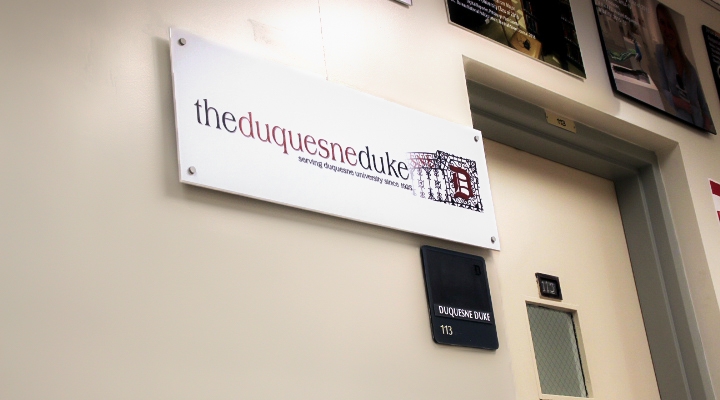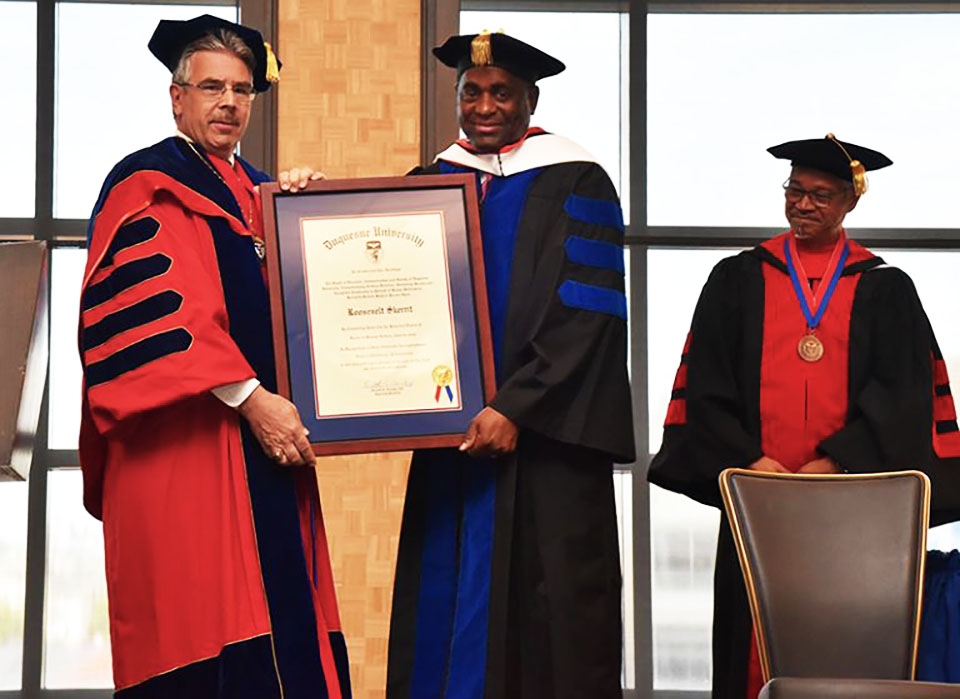

By Brittney Jackson | The Duquesne Duke
Duquesne hosted its annual Darwin Day event on Wednesday. Despite operating as a Catholic University, the University supports the teaching of evolution.
In 2003, David Lampee, associate professor in the Bayer School of Natural and Environmental Sciences, started Darwin Day at Duquesne and said that the administration was very supportive.
Lampee said that over the years, some non-science faculty suggested discussing “both-sides,” presumably suggesting that creationists should be allowed to speak at the event as well.
These proposals were denied, according to Lampee. Darwin Day is an annual lecture on an aspect of evolutionary biology.
According to Duquesne spokeswoman Bridget Fare, a university is “a place to exchange ideas.” Fare provided a statement from Pope Pius XII in 1950 to support her statement that evolution is not inherently contrary to Catholicism.
“Concerning human evolution, the Church has a more definite teaching,” Pope Pius XII said. “It allows for the possibility that man’s body developed from previous biological forms, under God’s guidance, but it insists on the special creation of the soul.”
In 1996, Pope John Paul II said, “truth cannot contradict truth,” referring to evolution and the message of Revelation. In 2003, he expressed further support for evolution and said “scientific truth, which it itself is a participation in ‘divine truth,’ can help philosophy and theology to understand ever more fully the human person and God’s Revelation about man.”
In 2008, Pope Benedict XVI addressed the members of the Pontifical Academy of Sciences and said that there is “no opposition between faith’s understanding of creation and the evidence of empirical sciences.”
Other members of the Catholic Church have pledged their support of the theory of evolution, in contrast to those who believe the church advocates a literal interpretation of Genesis.
According to Lampee, there is over 150 years of scientific evidence to support evolution, the “organizing principle of biology.” Evidence includes the fossil record, comparison of homologous structures, presence of vestigial structures, developmental similarities, biogeography, artificial selection and molecular evolution.
Creationism, Lampee said, is the belief that a deity (usually the Christian God) created living things directly. Lampee said creationism is a series of supernatural assertions, not a well-tested body of knowledge with great explanatory power.
Michael Seaman, associate professor in the Bayer school, said that creationism could not be considered a valid theory because no scientific evidence exists to support it. According to Seaman, the Catholic Church accepts evolution but cautions against “naïve philosophical positions” that humans are animals without consciousness.
According to the Rev. Bill Christy, the Catholic Church does not advocate a literal interpretation of Genesis and is “very happy to accept the truth that comes from science.”
“We believe in the instilling of the breath of God, there is the creation of a soul that is God’s intervention into creation and this is something that establishes us as different from the rest of the animal kingdom,” Christy said. “This doesn’t exclude evolution.”
Lampee said the Catholic Church’s stance on evolution is referred to as “theistic evolution.” Theistic evolution is the view that evolution is real but that evolution is a mechanism that God uses to create.
If Duquesne were to ever stop teaching evolution, Lampee said the University would commit “intellectual suicide.” Seaman said it is essential that Duquesne provide students with the best scientific education possible, and that disregarding teaching evolution in science classes would violate the University’s mission: “serve God by serving students.”
“If the administration told me to do something to violate this mission, by handicapping our students by essentially lying to them and denying them the best education, I would have to quit my job,” Seaman said. “Our students would graduate not understanding the underlying principles of biology.”
This year’s Darwin Day event was deemed “Time Travel in Experimental Fashion,” with Michigan State professor Richard Lenski speaking.




